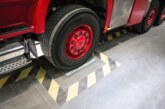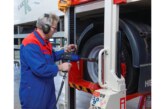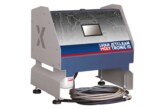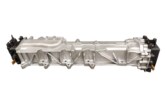
What does the revised FORS Standard mean for operators? CVW finds out the details.
The revised FORS Standard became effective in January 2019, setting out the requirements operators must meet if they wish to become accredited with FORS, the Fleet Operator Recognition Scheme.
This fifth iteration of the document, which comes as FORS enters its 11th year in operation, allows provision for powered two-wheeler vehicles to address the need for safety across a broader range of commercial vehicles. It also includes new driver training requirements to address the growing need for air quality improvements and the ongoing threat of terrorism.
FORS Director, Sonia Hayward looks at how the FORS Standard has changed, and why evolving compliance is the key to raising operational standards in the transport and logistics industry.
Q. Why has a new version of the FORS Standard been issued?
Sonia Hayward (SH): FORS is committed to continuous best practice, both in the progressive nature of our accreditation, and in the way we work to ensure our requirements remain relevant.
So, the FORS Standard is not a static document, because best practice is not static. Standards must respond to emerging best practice, new legislation that affects members, and the feedback of members themselves, so it needs to be updated every two years. It is vital that the requirements of the FORS Standard reflect the evolution of best practice, and the singular aim of FORS to drive-up safety, environmental, and efficiency standards for all road transport operations.
Q. What are the key changes to the entry level FORS Bronze accreditation?
SH: The revised version has been designed to make FORS accessible to more vehicles, especially the growing fleets of motorcycles and other powered two-wheelers, which contribute to many last-mile deliveries on UK roads.
Passenger carrying vehicles (PCVs), are also given greater credence, with a new requirement at FORS Bronze to ensure accessibility, comfort and safety for all passengers. The requirement must be demonstrated via a passenger safety policy, on vehicle signage and adequate access for all passengers.
A new counter terrorism requirement has been introduced at Bronze, to minimise the risks posed by potential security and terrorist threats, and help members ensure staff are prepared to deal with extremist and terrorist action.
Operators must now have a counter terrorism policy and supporting procedures in place, which includes naming a Counter Terrorism Champion. Drivers are also required to have undertaken the FORS Professional Security and Counter Terrorism eLearning module within the 24 months prior to audit.
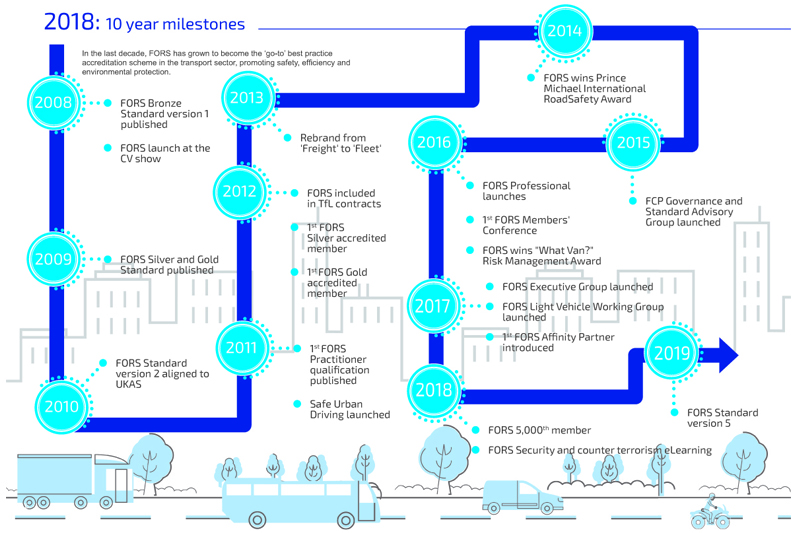
Q. What are the key changes to the operating centres and noise sensitive FORS Silver and Gold accreditations?
SH: An added emphasis on improving environmental operating standards has become evident with a new requirement at FORS Silver for HGV and van drivers to complete the FORS Professional ‘LoCITY – Time to clean up’ eLearning module within the 24 months prior to accreditation.
FORS has also introduced a Gold requirement for drivers to have completed either the FORS Professional LoCITY Driving training course, or a FORS-approved environmental awareness course within the past five years. This is in addition to the current requirement to have attended Safe Urban Driving or Van Smart, or a FORS- approved, work-related road safety training course, within the five years prior to accreditation. FORS Silver also includes a commitment to tackle noise pollution – criteria formally mandated at FORS Gold. Operators seeking FORS Silver accreditation must complete noise assessments at locations in a bid to minimise noise pollution and its impact on local communities.
Q. How do these changes reflect how compliance has changed since FORS started?
SH: Since FORS began in 2008, it has grown from a relatively small, London-centric operation, to encompass well over 5,000 members of diverse fleets nationwide. Consequently, the requirements and demonstrations set out in this revised FORS Standard reflect this truly national and broad remit.
It is vital that compliance can meet the evolving challenges our industry faces, and FORS serves to help operators meet these challenges and strive for continuous operational excellence and best practice. We are confident the revised FORS Standard moves our members forward on this course, and will guide FORS members on how to run a safe, efficient and environmentally- sound operation.
About FORS
The Fleet Operator Recognition Scheme (FORS) is a voluntary accreditation scheme established in 2008. It is open to UK and non-UK fleet operators, and to the organisations that award contracts to those operators. With 5,000 members, FORS is now well-established as the go-to accreditation scheme for best practice. For more information, visit www.fors-online.org.uk.

